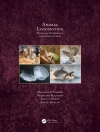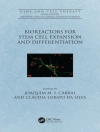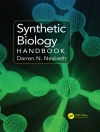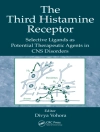The traditional approaches to treat various cancers include chemotherapy, radiation and/or hormonal therapy. While these therapies continue to be effective in large part, they are not selective and highly toxic. There have been encouraging results in alternative therapeutic approach called antibody-mediated anti-cancer therapy, which is less toxic, more selective, and can also reverse drug/radiation resistance. Monoclonal antibodies or m Abs can be used to destroy malignant tumor cells and prevent tumor growth by blocking specific cell receptors. m Abs can bind only to cancer cell-specific antigens and induce an immunological response against the target cancer cell. The book covers the common and unique features of m Abs agains various cancer, gives the latest developments on the molecular, biochemical and genetic mechanisms of resistance by various m Abs, as well as discuss novel m Abs to overcome resistance.
İçerik tablosu
Preface.- Introduction and generation of chimeric and humanized m Abs.- m Abs targeted against cancer cells and antibodies targeted against the tumor microenvironment.- Antibodies directed against different major cancers: Effects when used alone or in combination with drugs.- Mechanisms of antibodies-mediated responses, in vitro and in vivo.- Molecular Pathways.- Molecular Signatures.- Identification of resistance targets for intervention.- Various chemicals that can sensitize resistant tumor cells.- Other m Abs.- Proteasome inhibitors.- Divalent m Abs.- Antibodies coupled to chemical inhibitors.- Antibodies coupled to cytokines.- Nanoparticles with m Abs.- Index.
Yazar hakkında
Dr. Benjamin Bonavida is a professor at UCLA’s David Geffen School of Medicine for the Department of Microbiology, Immunology, & Molecular Genetics. His other appointments include being a member of the Department of Defense Congressionally Directed Medical Research Program, Member of the National Cancer Institute’s SPORE Program, member of the International Scientific Advisory Board of the Israel Cancer Research Foundation, to name a few. He’s currently a scientific reviewer for several journals and a member of editorial boards including Journal of Clinical Immunology, International Journal of Oncology, and Cancer Biotherapy & Radiopharmaceuticals. In his career, he’s published over 450 papers and reviews, and he’s also edited two books with Springer in the past. For more information, please see the CV attached herewith.












